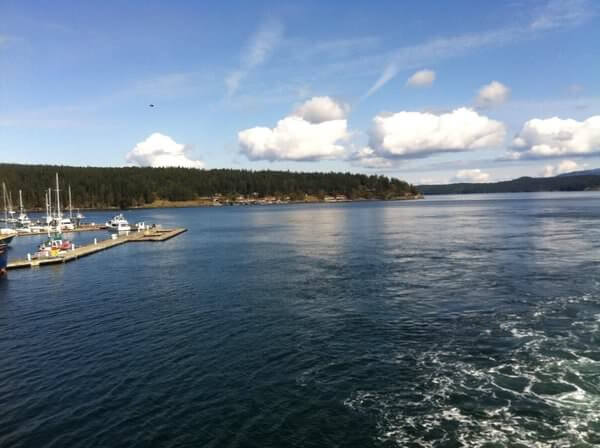On the road…

So I just got back from one of my favorite places, the Friday Harbor Marine Center in Friday Harbor, Washington, where I gave a talk at the 2013 Northwest Regional Society of Developmental Biology meeting. Four days in the San Juan Islands, lots of great talks, and better discussions over beers at the poster session or at meals. Not to mention oysters and drinks with the keynote speaker. This was a bit of a homecoming for me; I was fortunate enough to have attended four NWDB meetings while at graduate school in Oregon. And still having connections from grad school, I was able to hitch a ride with a group of students and postdoc’s from the UO, which saved money and gave me a group to connect with.
Conferences, especially small meetings such as this, are not only a great perk of our job, but so important to developing as scientists. Outside of publishing papers, presenting at conferences is one of our major means of communicating our work, as well as getting critical feedback to focus our own research. As such, i’ve made the effort to present, at least a poster but preferably a talk, at every conference i’ve attended. It’s certainly a bit terrifying… but it gets better, especially with practice, and realizing we all get nervous. My newly-made friend Jaime and I were both presenting in the same section, and while walking off some nerves, I came across him doing the same. Jaime ended up winning the best post-doc talk, which goes to show even when you’ve got a great story, many of us scientists aren’t naturally comfortable at public speaking.
Meetings are also a way to putting names to faces, and developing new connections. I mentioned in a previous post about a visiting colleague from edmonton, whom I met previously at this conference, and i’ve developed a number of friends in the field from talks over posters or between sessions. These conversations are where you can really probe for details about specific experiments, to see how people really feel about potentially questionable results or interpretations, and to brainstorm about new experiments. And many, if not most, of these conversations occur not just at the conference, but in time between sessions, such as exploring the area around the conference site, or even the bar at the end of the day. Even if you don’t drink, or are tired from a long day of talks, it’s probably not a bad idea to push yourself to socialize and get to know your colleagues.
{eblogads}

0 comments